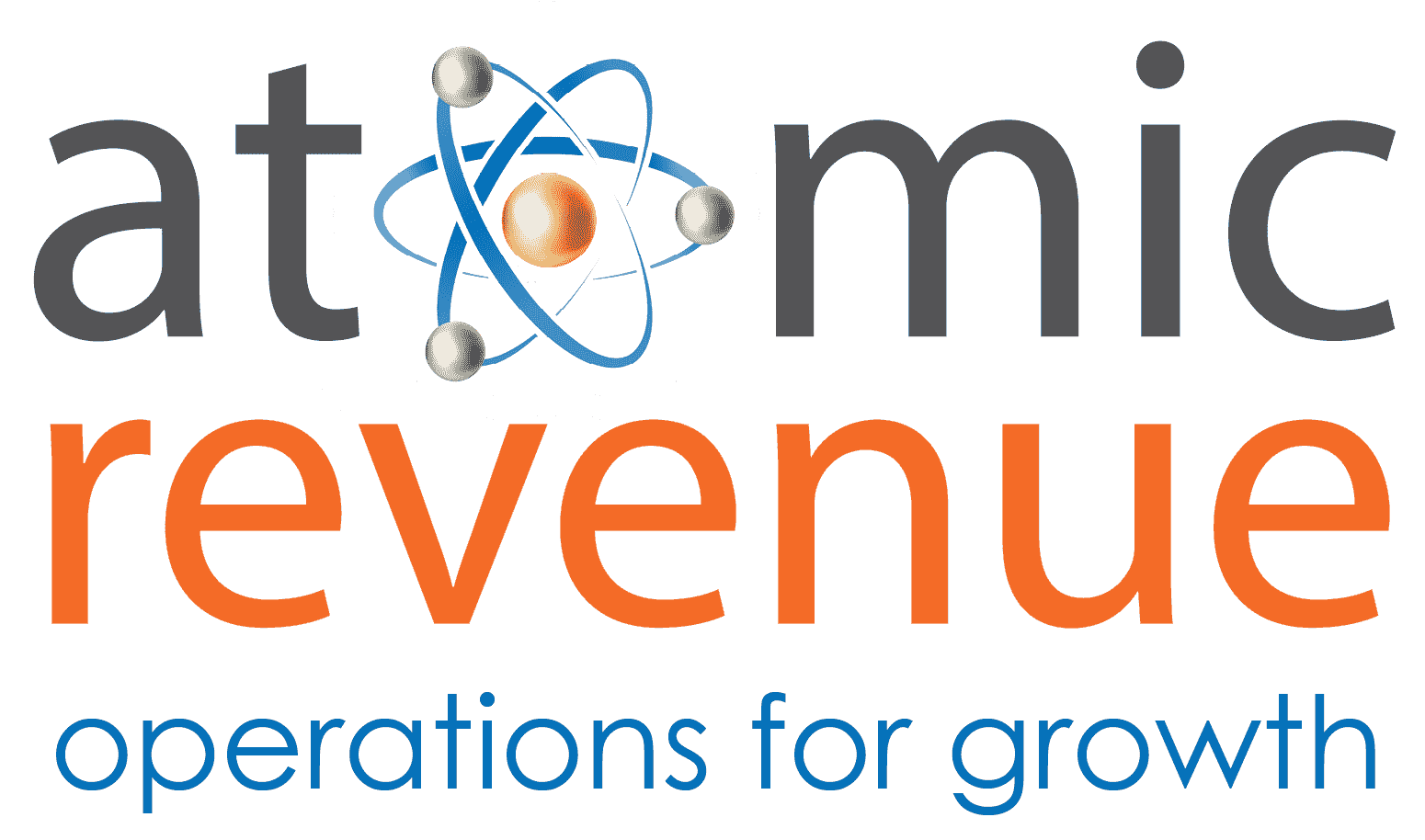 In the rapidly evolving world of B2B tech and engineering service providers, adapting to new technologies is both a challenge and an opportunity. The integration of advanced marketing and sales technologies—such as marketing automation and optimized Martech stacks—has become essential for staying competitive. Yet, many businesses still face significant hurdles in implementing and optimizing these tools effectively. In fact, it is one of the top reasons people come to Atomic Revenue (https://blog.atomicrevenue.com/common-reasons-people-call-atomic-revenue) In this post, we’ll explore how fractional consultants and the right technological strategies can help B2B service providers navigate these changes and optimize their operations for 2025 and beyond.
In the rapidly evolving world of B2B tech and engineering service providers, adapting to new technologies is both a challenge and an opportunity. The integration of advanced marketing and sales technologies—such as marketing automation and optimized Martech stacks—has become essential for staying competitive. Yet, many businesses still face significant hurdles in implementing and optimizing these tools effectively. In fact, it is one of the top reasons people come to Atomic Revenue (https://blog.atomicrevenue.com/common-reasons-people-call-atomic-revenue) In this post, we’ll explore how fractional consultants and the right technological strategies can help B2B service providers navigate these changes and optimize their operations for 2025 and beyond.
The Growing Role of Marketing Technology (MarTech)
As businesses approach 2025, many are evaluating their marketing technology stacks. Martech tools are essential for modern marketing but can also be expensive and complex to manage. From customer relationship management (CRM) to sales automation and data visualization tools, these technologies are crucial for driving engagement and revenue growth. However, many organizations struggle to ensure they’re getting the most out of their investments.
Why Does This Happen? A primary reason is that marketing technology is constantly evolving, which can make it difficult for businesses to stay on top of the latest innovations. Furthermore, as the MarTech landscape grows—reportedly, there are now over 7,000 solutions available—companies face a daunting task in selecting, integrating, and optimizing the right tools. Without the right approach, businesses risk wasting money on tools that don’t align with their strategic goals.
To tackle these challenges effectively, many B2B tech companies are turning to fractional consultants—experts who offer their services on a part-time basis.
How Fractional Consultants Help B2B Tech Companies Optimize Their Martech Strategy
A fractional consultant is a skilled expert brought in to evaluate and optimize a company’s existing tools and systems without the cost of hiring a full-time employee. In the context of B2B tech and engineering service providers, fractional consultants can help in several ways:
- System Optimization: A fractional consultant can review your MarTech stack, identify underutilized features, and recommend strategies to optimize your tools. By fully leveraging these platforms, businesses can increase productivity and streamline operations. A well-optimized stack ensures that the technology works for the organization, not the other way around.
- Cost Savings: Many businesses overlook the hidden costs of technology implementation. Fractional consultants can identify redundancies in tools, highlight underused platforms, and recommend cost-effective alternatives. This helps companies cut unnecessary expenses and focus on what truly delivers value.
- Strategic Alignment: Your tech stack needs to align with your broader business goals. Whether your focus is on revenue growth, customer retention, or operational efficiency, fractional consultants ensure that your marketing tools are integrated into your strategy. They help create a roadmap that aligns tech investments with business priorities.
- Hands-On Implementation Support: Even with the best technology, implementation challenges can arise. Fractional consultants can guide businesses through the setup and integration of systems, ensuring everything runs smoothly from the start. Their expertise in managing change and training staff reduces the likelihood of disruptions and long-term issues.
Review a case study of how this was successful in real life.
The Hidden Costs of Technology Changes: How Fractional Expertise Saves the Day
Implementing new marketing technology is more than just a financial investment; it’s also a significant commitment of time, training, and resources. However, many companies underestimate the hidden costs involved in implementing these new systems, which can lead to delays, budget overruns, and misaligned processes. This is where fractional consultants come in—they bring the expertise needed to avoid common pitfalls and ensure that technology changes deliver the expected results.
- Avoiding Overruns: When businesses invest in new tools, they often neglect the full scope of the implementation process. Costs for integration, setup, and training can quickly exceed initial expectations. Fractional consultants help manage these costs by providing expert guidance throughout the process, ensuring that tools are set up correctly and that teams are well-prepared to use them.
- Long-Term Savings: Instead of committing to full-time staff to manage your tech stack, fractional consultants offer flexibility and scalability. They provide on-demand expertise, meaning businesses can adjust their level of support as needed. This results in smoother integrations, fewer disruptions, and long-term cost savings.
The Rise of Marketing Automation
One area where B2B tech companies often struggle is in the adoption and effective use of marketing automation. Marketing automation tools allow businesses to streamline their marketing efforts, reduce manual work, and measure performance across multiple channels. These tools can be a game-changer when used correctly.
However, many companies still see marketing automation as a standalone tool focused solely on lead generation. This narrow view limits its potential. In reality, marketing automation should be used to align marketing, sales, and customer service efforts, ensuring a seamless revenue generation process across the organization.
Learn more about why marketing automation is not just for marketing.
Integrated Martech Solutions: To fully leverage marketing automation, B2B tech companies must adopt a broader, more integrated approach. Leading platforms like HubSpot, Salesforce, and Adobe Marketing Cloud offer robust solutions that combine marketing, sales, and customer service functionalities. This integration allows businesses to better understand customer behaviors, track key metrics, and align strategies across departments.
The Data-Driven Advantage: Marketing automation solutions gather and analyze vast amounts of data, providing actionable insights into customer behavior and marketing performance. By using this data to refine strategies and tactics, businesses can significantly enhance their revenue-generating efforts.
Final Thoughts: Embracing Technology for Growth
Adapting to technological changes is essential for B2B tech and engineering service providers looking to thrive in an increasingly digital world. The key to success lies in optimizing your tech stack, aligning it with business goals, and continuously refining your strategies. Fractional consultants offer a valuable resource to help you navigate this complex landscape, saving you time and money while ensuring you’re fully leveraging the tools at your disposal.
By embracing marketing automation and integrated MarTech solutions, B2B service providers can gain a competitive edge, improve customer relationships, and drive revenue growth. For companies looking to optimize their marketing technology, now is the time to assess your stack, identify inefficiencies, and take steps toward a more strategic, data-driven future.
Read more about how fractional consultants can help optimize your 2025 marketing strategy.
Do you know where your revenue is coming from? Understand your numbers with a free Revenue Assessment.
About the Author
 Philip Jackson is the Director of Outcomes Success at Atomic Revenue, where he is responsible for overseeing all project guides and their teams to ensure clients achieve successful results. Prior to his current role, he was a Management Consultant at Flex, a global Fortune 500 manufacturing and supply chain leader, where he focused on go-to-market strategies for new medical device products. Philip also led a nationwide marketing and recruiting program on behalf of the Army National Guard, planning, leading and executing 350 events on high school campuses within a 2-year period. His dedication to client success and his strategic mindset make him a trusted leader and advisor.
Philip Jackson is the Director of Outcomes Success at Atomic Revenue, where he is responsible for overseeing all project guides and their teams to ensure clients achieve successful results. Prior to his current role, he was a Management Consultant at Flex, a global Fortune 500 manufacturing and supply chain leader, where he focused on go-to-market strategies for new medical device products. Philip also led a nationwide marketing and recruiting program on behalf of the Army National Guard, planning, leading and executing 350 events on high school campuses within a 2-year period. His dedication to client success and his strategic mindset make him a trusted leader and advisor.





